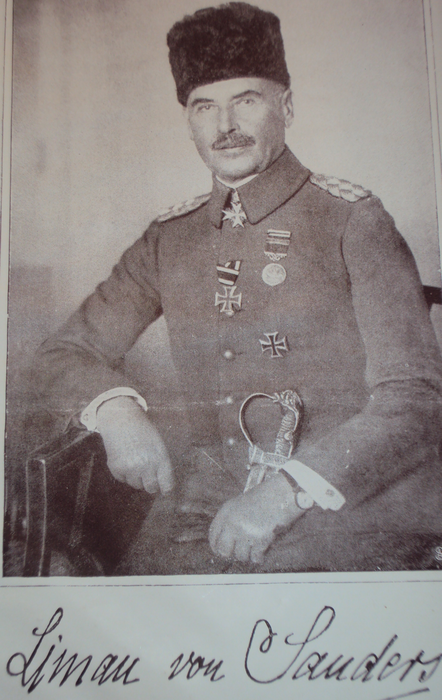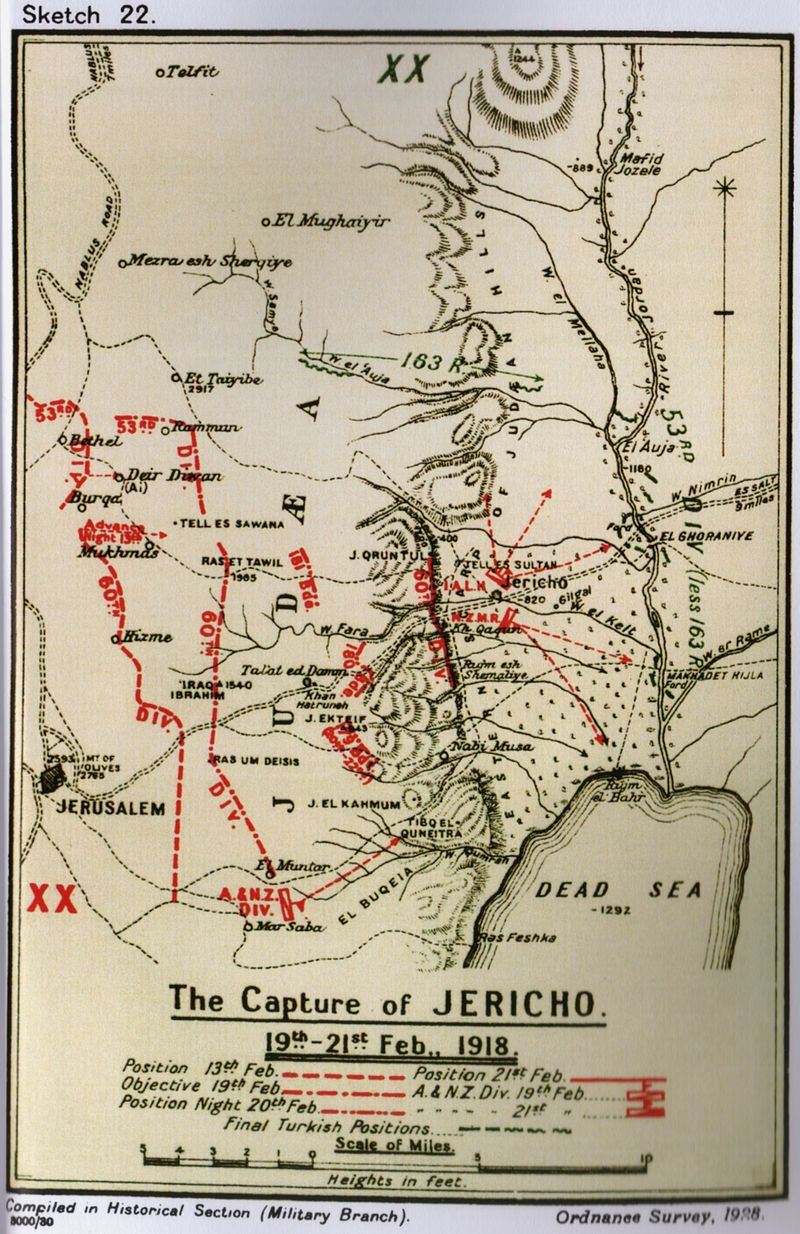and a number of campaigns in The Great War, shares
some frank wisdom about warfare, based on his hard-
earned experience.
He also has more harsh words about Enver Paşa.//

Ali Fuad (Cebesoy) with his War College
classmate Mustafa Kemal (Atatürk). They
both served in the Yıldırım Army Group
and went on to scale greater heights.
The commander of the 8th Army Corps, Colonel Ali Fuad Bey,
certainly displayed great courage vis-a-vis the idea (Gen. Liman
von Sanders's attack plan - see Part X) and rightly proved his mettle.
He would not lower himself to launch such an ill-advised attack just
to prove himself, whether or not success could be achieved.
Ali Fuad Cebesoy click here for his biography.
It is strange, whether it was during the Balkans War or the Great War,
we soldiers had a noteworthy lack of empathy for the enemy. During
the Balkan War, I was at Yanya and we never once spoke of the enemy
as a formidable foe. We would say that whether we attacked with a
battalion or a company we would finish off the enemy. It is essential,
of course, to train soldiers in this way.
But commanders and their general staffs must weigh our strength
against the enemy's honestly, so as not to miscalculate in military
operations. Downplaying the enemy's might and always nurturing the
concept of attack are the marks of a good soldier. Nevertheless, this
must not be abused. Sometimes, good defense wins the battle, rather
than an attack, and there are many examples of this.
It is quite easy to espouse the idea of an attack but actually
implementing an attack is very difficult, even if the goal is sincere and
for the good of the army and the nation. Championing defense over
attack in a place where an assault would be unsuitable takes courage.
The lightest form of punishment is accusing someone of cowardice.
So even if there are those who admire your idea, they will rarely
say so openly, preferring to sing the praises of their superiors.
Ottoman soldiers at Gaza.
As a result, it doesn't matter whether an attack will be successful or
calamitous, the important thing is to attack and display bravery! We
have seen many times how hundreds of soldiers' lives have been
sacrificed for a slice of a trench or a hill of no real importance. Those
who join in raids and attacks, one after the other, are praised for their
courage and become legends. But when there is no proportion
between the gain and the damage done, it is false praise.
When I was in Austria and Germany, I heard many times from them:
"You Turks are the best soldiers in the world but with your needless
assaults and aimless raids you squander yourselves." The benefits
for individuals must be considered, just like plants need sun, soil and
water to live.

Our commander-in-chief (Enver Paşa) thought that a few cavalry
companies dispatched to the Black Sea coast could conduct raids inside
Russia and destroy its railroads; that the fortress of Batumi and Ardahan
could be taken with the help of local gangs; and that by occupying a
country like Iran with a force of a few battalions an attack could be
made on India. There was not even a whiff of reality in any of those
ideas.
But the commander's style of operations had to be attended to and
those who were able to adapt themselves to his whims saw the path to
promotion and command opened. So many who lacked merit took
full advantage, as long as they hid their real feelings, and prospered.
They were able to ingratiate themselves for the sake of ambition and
fame.
Nevertheless, there were, to be sure, many other honorable soldiers,
who, even though they didn't always succeed, showed fortitude. I
assert that thanks to them we were able to extend the War to four years
and prove our military mettle. Otherwise, if the commander's whims
had been indulged we would very likely have been defeated in less
than a year.
//END of PART XI//








